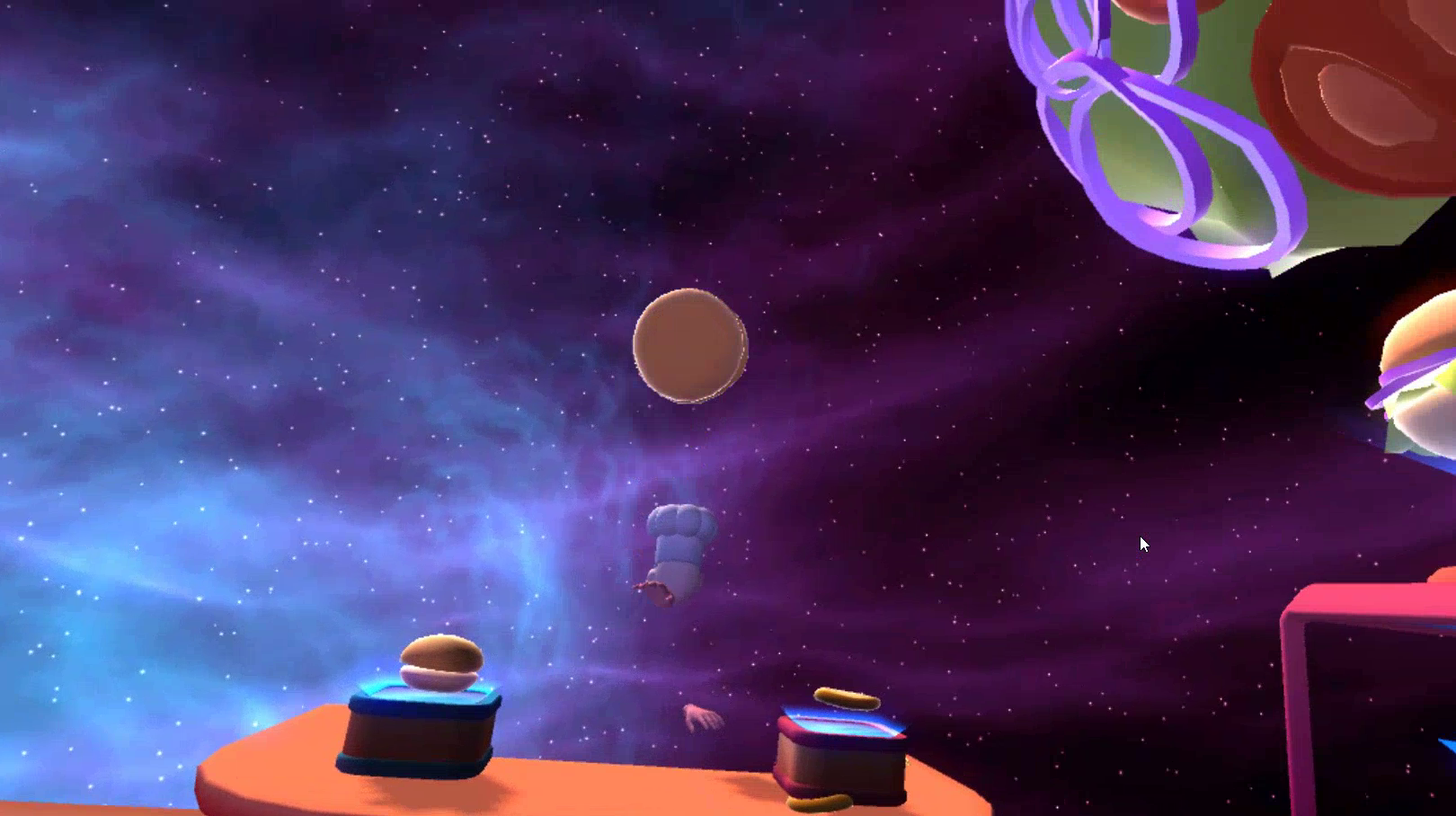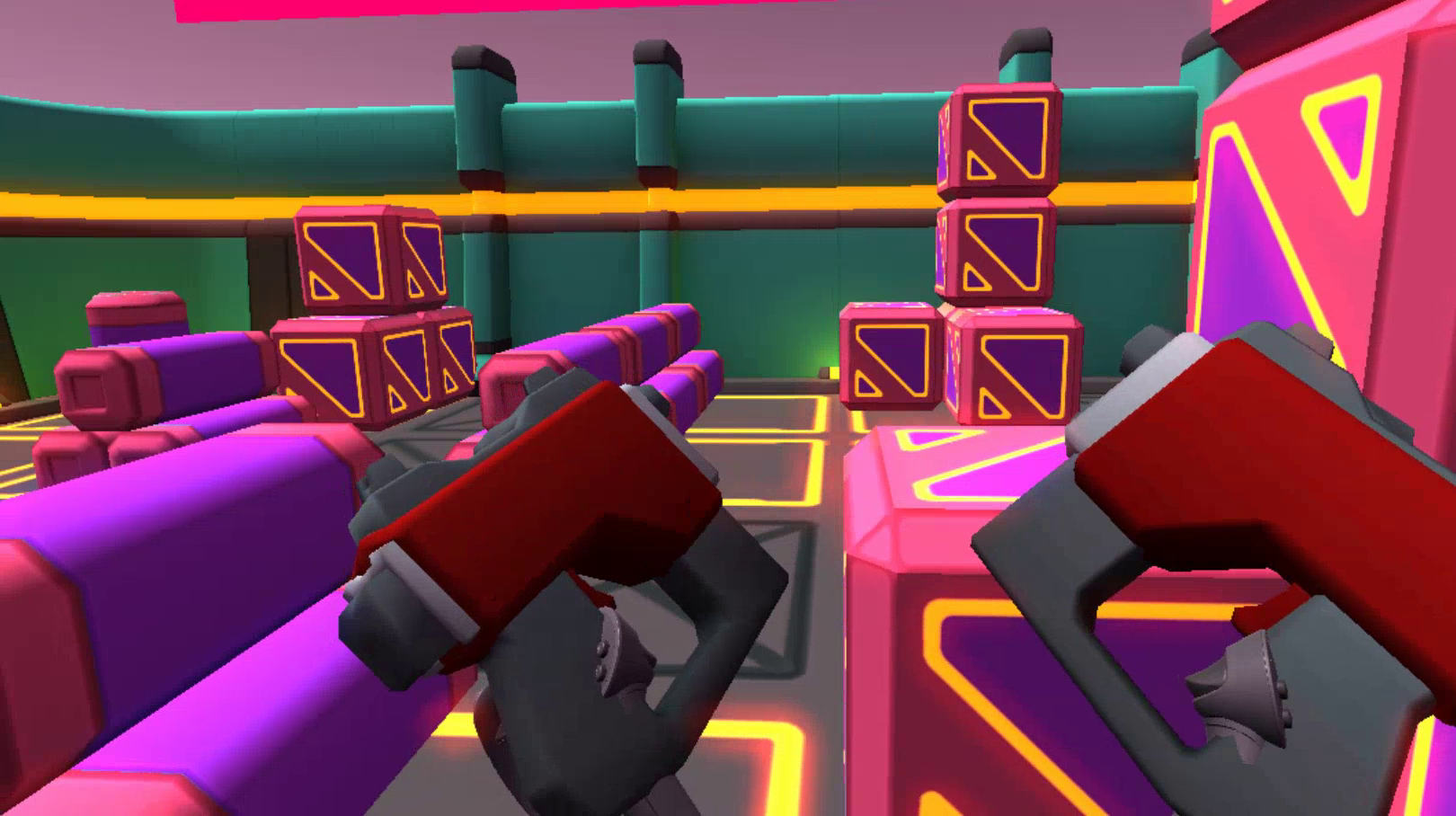Overview
Quantum for XR
Why Quantum for XR?
When using Quantum, you are saving a lot of precious development time, especially when coming from a traditional, non-deterministic, multiplayer systems approach, or even PUN, where you have a lot of hassles that you would need to deal for XR projects.
Quantum makes you not have to worry about the nitty gritty details of handling deterministic problems (as the Quantum engine handles everything in the simulation) and allows you to focus on what you do best - creating amazing XR experiences.


What are the Challenges?
Think about the challenges of real-time physics with non-deterministic systems, like making sure the one client dictates all the rules and sends it to everyone so that things like physics simulation stay synchronized and there are no weird behaviors throughout all the clients in the sharing the same instance.
Think also about all the edge cases that you usually have to deal with for fast-paced multiplayer AR games or realistic, physics-based training VR simulations. With Quantum most of these cases are automatically solved, since Quantum runs the simulation on the cloud (or locally, for testing purposes) and only uses the client for rendering and input handling.
What hardware can I use?
Whether you’re working on AR, VR, MR we cover pretty much all of your multiplayer needs right off the shelf. Quantum is agnostic when it comes down to where the simulation is being rendered - that is something you need to worry about on the client side, more exactly on the rendering engine. You can use it for an AR Dodgeball game, a realistic soldering training VR app or for MR meeting rooms.
Although most of our demos are currently being targeted at VR, Quantum aims to support all kinds of Extended Reality products, and we are currently adding new features to support this.
XR Demos Highlights
In this section we want to showcase a few of the potentialities of using Quantum for XR projects. For that purpose, we have a few project samples you can download and check how Quantum tackles different technical challenges commonly present in XR projects.
Reflekt VR
Reflekt VR is a sample game that implements the classic mechanics of Pong, in VR. This demonstrates how we can use the technology of Quantum to build multiplayer VR games. The sample also illustrates the usage of the Quantum Bot SDK.
- Simulation Independent Visualization:
The simulation is, at it's core, a 2D game of Pong. However, the sample represents the 2D game as a 3D environment completely independent of the simulation, the sample even features an in Editor VR-less view for testing the AI.
The sample also showcases world transformations so we can move a 2D world in 3D space, and how to handle VR input for a game like this. - Multi-difficulty AI with Hot Swap Capabilities:
This sample has a fully functional AI, with varying difficulty using Quantum's Bot SDK. The AI is always ready to take over the commands of a player in case the player disconnects, or if you just want to run a single player game against it. - Full Photon Voice integration.
Space Diner
Space Diner is a sample VR multiplayer co-op cooking game, that leverages the Quantum tech to build a complex VR environment and a co-op experience. Players are tasked with building recipes to match different orders. As each chef only has a handful of ingredients at reach. They must collaborate with each other in order to meet the order's requirements. Lots of food, lots of throwing things around, lots of fun.
- Co-Op Gameplay Experience:
This sample showcases how you can work with Quantum to create a cooperative experience for your players. - Advanced Data Assets:
The food view uses lots of information from the simulation in order to represent the food objects in the view consistently and easily.
Check it out to learn how to assign different visualizations to your Quantum entities, and how to create your own views if the need arises. - VR Input and Compression:
Learn how to work with VR Input in Quantum, efficiently and without headaches. - Full 3D world simulation & 3D physics:
This sample uses the 3D physics system available on Quantum for all physics tasks.
The Physics based gameplay also includes throwing and catching objects. - Full Photon Voice integration.
- It's delicious :)
Skyware
Skyware is a competitive VR multiplayer shooter game that can be played solo or on teams. Each player has 2 weapons and a limited health pool. The game happens on a virtual arena, where up to 4 players can meet and fight. Eliminate all your opponents to win the round. Remember to aim for the head!
- PvP Gameplay:
This sample showcases how you can work with Quantum to create a competitive experience for your players, be it solo or team based. - Classic Shooter Gameplay:
Skyware is built upon the classic idea of a shooter game, each player has weapons they can use to shoot at the opponents. Each opponent has a health pool that needs to be depleted in order to die, and opponents also have weak spots, so aim for the head! Weapons can be customized via data assets. - Tile-Based Procedural Map Generation:
Skyware has a tile based map generation system, making each match unique.
The system also takes into account the optimization necessary for running on devices like the Oculus Quest. The system can be analyzed and expanded upon with the addition of new tiles, or with map generation rules. - Teleport-Based VR Movement:
Skyware allows the player to move in their 2x2 play area as well as teleporting around each of the map tiles, looking for cover or vantage points to better shoot their opponents. - Different Game Modes:
Skyware has 2 different game modes to play. A free-for-all mode or a 2v2 team battle.